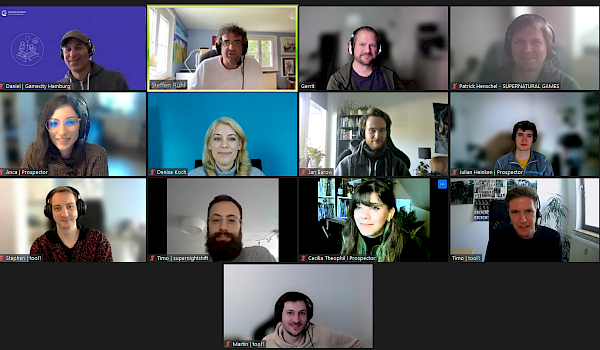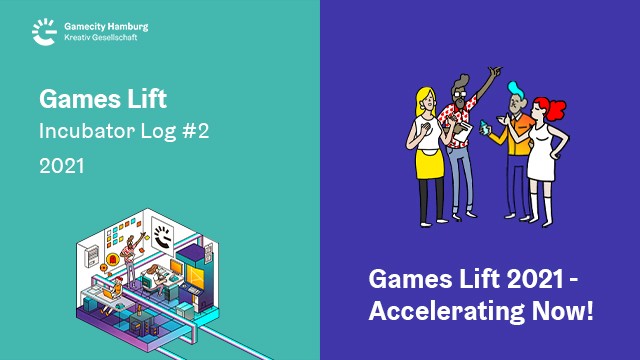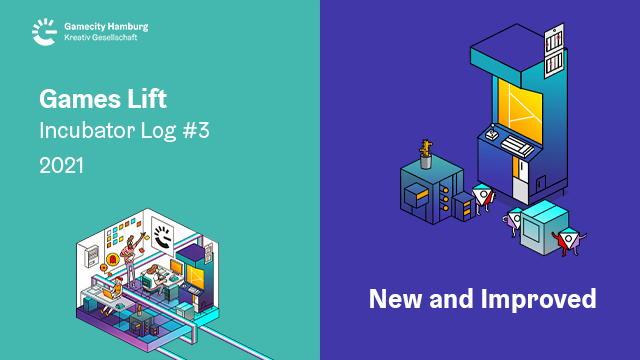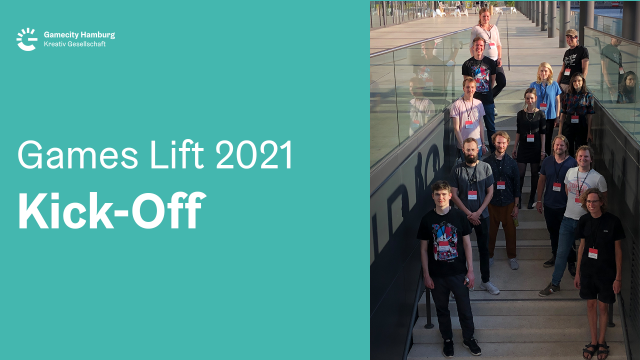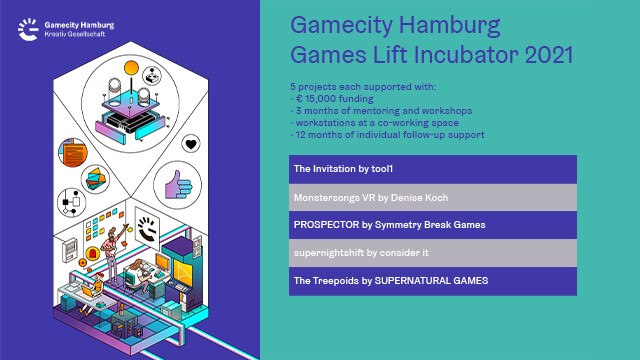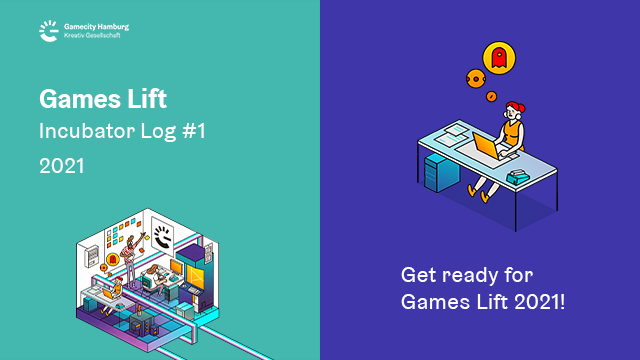October 8, 2021
Games Lift: What we do in our workshops
Good things are happening in our Games Lift Incubator workshops right now. A lot of them are confidential. But some of them are not! We got to listen in on two veterans of game marketing and pitching. One of them is a new addition. Find out more in our new Games Lift Log entry!
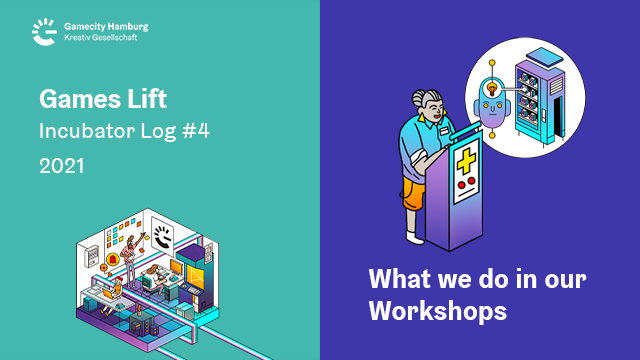
The games industry is changing rapidly, all the time. In order to give our teams the info that’s most relevant right now, we at the Games Lift Incubator strive to win over real, established experts actively working in their industry. We are overjoyed that local luminaries like Super Crowd’s Wolf Lang and Michael Schieben, co-author of The Product Field are making a return.
Our newest discovery
One particularly noteworthy addition to our line-up of coaches and speakers is Simon Carless. He hardly needs an introduction: Among other things, he shaped Gamasutra (recently renamed gamedeveloper.com), the Game Developers Conference and the Independent Games Festival. These days, his GameDiscoverCo game discoverability newsletter is required reading for anyone interested in selling games on Steam and elsewhere.
Simon is adept at pulling gems out of his immense store of knowledge. His first point is the sheer importance of discoverability. Being seen at all is the biggest challenge for developers, he reminds us.
On Steam alone, there are over 250 games getting released every week. How do you stand out in a marketplace this crowded? For Simon, it all has to start with an inward look: What is your game’s hook? How to define it and how to put it into words can be hard to explain. The wide variety of game projects in this year’s Games Lift Incubator is testament to that. But when Simon talks to every team individually, he is remarkably quick at identifying what’s important. For Monstersongs, the genre description alone is a looker: A “VR rock musical”? That sounds completely new! For others, it might be something that players can cling to. Tool1’s project The Invitation could be described as a looter-shooter, for example. Simon knows how popular the genre is among players today and strongly encourages the dev team to get the term front and center when describing their game.
Simon also has 10 commandments of Game Discoverability on hand. In contrast to other commandments you may have heard, Simon’s get remarkably specific. That is because there is concrete data behind them. When Simon talks about the importance of Steam wishlist additions or followers, he knows how they relate to each other and to sales. For readers of his newsletter, this might sound familiar. What’s new is the interactivity. He has a way of quickly finding an encouraging answer to almost any question.
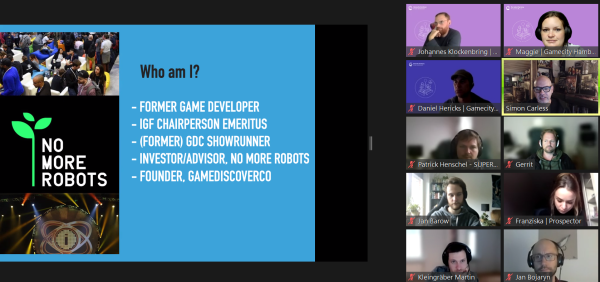
Big Pitcher
Steffen Rühl is another well-known name in the games industry. He has worked in business development at astragon, dtp and EA. And he sat on a variety of juries and funding committees, among them the “Deutscher Entwicklerpreis”(German Developer Award)German Developer Innovation Prize from its inception. In his pitch training workshop, he brings a real insider’s perspective.
His style of presentation is remarkably interactive, even in a Zoom meeting. “What do you need?”, is his first question. And he isn’t afraid of following teams where they need to go – even if it is testing the limits of his workshop.
Perhaps the most encouraging lesson Steffen has for the teams is to be themselves. He may be blunt about what works and what doesn’t, about how the person doing the pitching has to adapt to the audience. But he keeps emphasizing the need for each team’s personality and its vision to shine through. Showing enthusiasm is essential.
Steffen is refreshingly open about the necessary limits of all expertise. Most participants in this year’s Games Lift Incubator aren’t newcomers, so he invites them to share their own experiences with specific juries and committees. What he can do is put them into context in new and enlightening ways.
A real eye-opener are Steffen’s reminders to think about the people at the other side of the table. What do publishers, investors, or members of a jury actually look for in a game? Identifying the different goals and needs, and addressing them in your pitch can be a north star when deciding what to include and what to emphasize. The money guy from a big publisher might actually be risk-averse because backing a commercial flop could end his career. An investor, on the other hand, might actively search for a talented team with long odds.
Steffen’s talk quickly runs into the time limit. He doesn’t sweat it and keeps answering questions well into the break. After lunch, he still coaches each team individually. But we won’t sit in on that. What we will get to see, however, are the results of Steffen’s coaching – at a later date.
